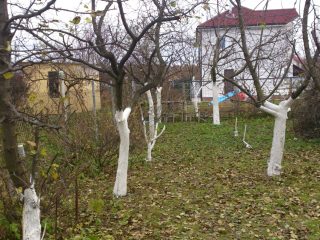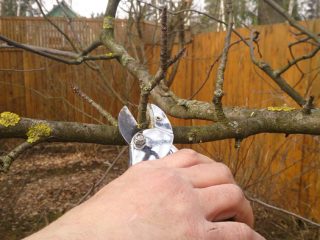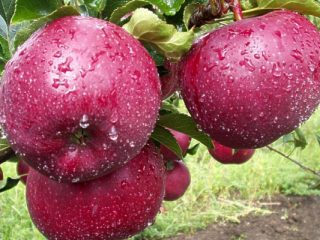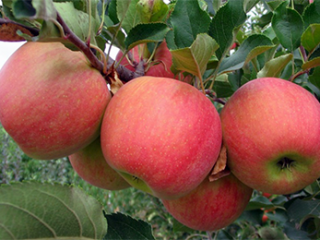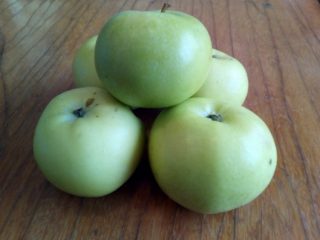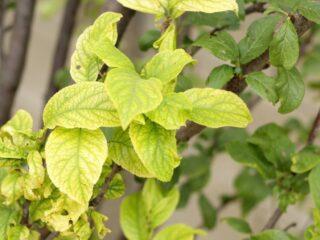Content
The Jonathan apple tree is one of the favorite varieties among gardeners. Valued for its productivity and ease of care, it pleases with beautiful ripe fruits with decent taste. Only owners who are familiar with the rules of selection and agricultural technology can see the maximum capabilities of a tree.
History of appearance
Currently, this variety is not just popular: its varieties can be found in almost any gardener, who may not know what exactly he grows.
The Jonathan apple tree was originally bred by American breeders. According to one version, the author is Rachel Hingley, who named the tree in honor of her husband. It is known that when obtaining the variety, the seeds of the Espopus and Spitzenberg varieties were crossed. In various sources in Russia you can find the tree under another name: Winter Khoroshavka, Winter Red. In Japan, the Jonathan apple tree is called Kougyoku.
Description of the Jonathan apple tree with photo
The wide variety of species causes gardeners to become confused about the characteristics of the tree. To date, about 40 “clones” of the tree are known. The most popular among them are the Jonathan Gold and Red apple trees. If you study the description and photo, you can find both similarities and differences.
Wood appearance
The apple tree is medium-sized, with a crown in the shape of a ball, but not quite regular. The skeletal branches have different lengths, so it seems as if the crown is slightly “crushed” from above. In adulthood, this feature is almost invisible. The color of the branches is brown or greenish.
The fruits are set on ringlets or fruit twigs. But it will be possible to harvest from annual growths.
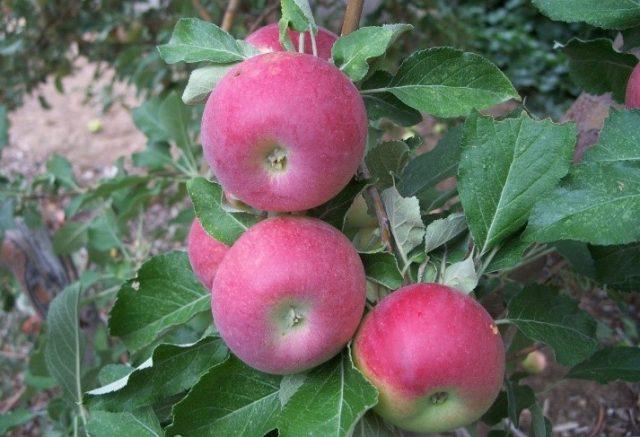
One of the characteristic features of the Jonathan apple tree is the presence of a silvery coating on the leaves.
Unlike its ancestor, the red Jonathan apple tree, the Gold variety is not medium-growing, but vigorous. During the growth period, the crown resembles a wide oval, but as soon as the tree begins to bear fruit, its shape changes to spherical.
It begins to bear fruit in the third year after planting; up to 40-60 kg of apples can be harvested from mature trees aged 9-12 years.
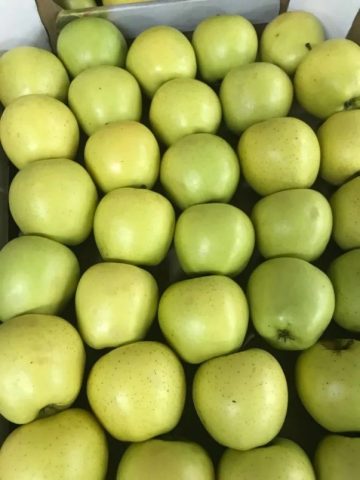
The Jonathan Gold apple tree produces greenish-yellow fruit that turns orange-red as it ripens.
We should also pay attention to the tree, which is often called a bud mutation of the crop. According to the description and photos with reviews, the Jonathan Red Apple tree is very similar to the main variety: the crown is medium-sized, not very thick, round.The tree successfully withstands frost and produces fruits that are similar in taste and appearance.
Distinctive feature: the fruits of the Jonared variety are larger and have a brighter color, but those of the Jonathan apple tree are richer in taste.
Description of fruits
In summer photos, Jonathan apples look very attractive: large, round in shape with slight ribbing and a smooth top. The surface of the fruit is even and smooth. The skin is yellow-green during the growth period, but as it matures it acquires a reddish blush.
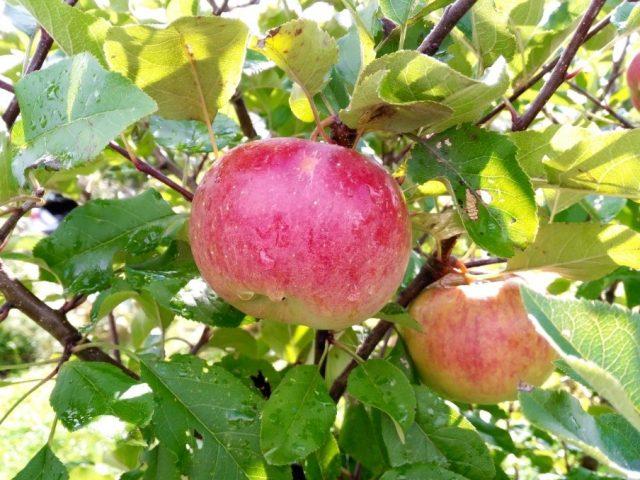
The weight of each apple of the Jonathan variety can vary from 100 to 150 g
The pulp is dense in structure, but very juicy, beige in color. The aroma of the fruit is pronounced. If you store the harvest correctly, you can enjoy it until mid-spring.
Characteristics of the Jonathan apple tree
It should be borne in mind that regardless of the variety, the characteristics of the trees are similar. The fruits are similar in appearance, apart from a few differences. Therefore, when choosing a seedling, you should rely on general data.
Taste qualities
In Jonathan, the ripe pulp can be of various creamy shades; in unripe fruits it is white-green. Tastes wine-sweet.
In the Red variety, the sweetness is slightly less pronounced, and in the Gold hybrid there are balanced sweet and sour notes. Some tasters note the presence of an astringent aftertaste.
Ripening time
At least five years must pass from the moment the seedling is planted in the hole until the first harvest is harvested. The fruits begin to ripen in mid-September, so the variety is considered to be late winter.
Productivity
At the moment, the maximum recorded is 490 kg per tree. On average, gardeners, with proper care, harvest up to 400 kg from each specimen.
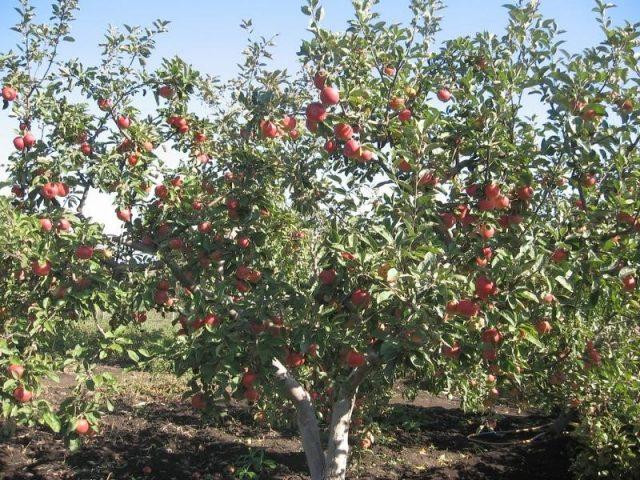
A characteristic feature of the Jonathan apple tree is that the more abundant the harvest, the smaller the fruits.
Frost resistance of the Jonathan apple tree
It is impossible to grow the tree throughout Russia: it is not sufficiently frost-resistant. With proper care, the Jonathan columnar apple tree can withstand temperatures down to -26-28.9 °C.
Jonathan apple tree pollinators
The variety is partially self-pollinating, so you can refuse to plant other trees in the neighborhood. But then the owner will never see a decent harvest.
It is recommended to place varieties such as McIntosh, Melba, Wellesley or Idared in the same garden with the Jonathan apple tree.
Growing regions
Despite the wide distribution of the variety in Europe and the USA, the tree cannot be found everywhere in Russia. The seedling can successfully take root and bear fruit in the North Caucasus region. The Jonathan winter apple tree is also found in Belarus.
Disease resistance
The tree cannot boast of high immunity. Under unfavorable conditions, it is often affected by powdery mildew. Scab resistance is average, and there is a risk of developing bacterial cancer.
Advantages and disadvantages
The variety is valued for its marketable appearance and high yield. Thanks to these characteristics, the Jonathan apple tree is grown for harvesting fruit on an industrial scale.
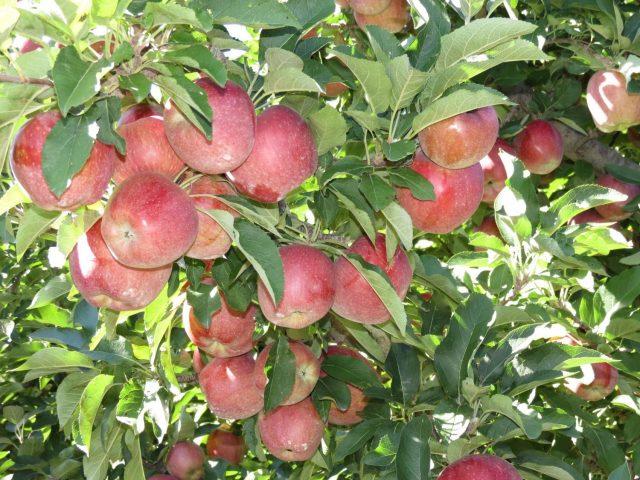
A characteristic feature of the variety is stable and early fruiting throughout its life.
Advantages:
- decent tasting qualities and pronounced aroma of the pulp;
- good transportability;
- possibility of long-term storage of fruits (until April inclusive);
- versatility of fruit use.
Flaws:
- average frost resistance;
- the need to plant pollinators;
- average resistance to diseases and pests.
Planting a Jonathan apple tree
The first stage of work is the selection of high-quality seedlings. It is best to purchase the Jonathan Gold apple variety in specialized stores. The seedling should have no foliage on its shoots. The root system of a healthy plant is undamaged and well hydrated.
Important! The height of a Jonathan apple tree seedling should not exceed 1.5 m. The older the tree, the harder it is to take root when transplanted.
The area for cultivation should be chosen to be warm and well lit by sunlight. The soil on it should be loamy or sandy loam, fertile.
The optimal time for planting in spring is April, and in autumn it is September or the first weeks of October.
Work algorithm:
- Form a hole so that there is room for the roots. The depth of the pit is at least 70 cm.
- Mix the soil at the bottom of the hole with organic fertilizers.
- Drive in a peg for support.
- Install the seedling and cover it with soil. Form a tree trunk circle around it and compact the soil.
- Water the apple tree generously and mulch.
Features of care
One of the required stages is watering. A young tree needs to be protected from the scorching rays of the sun. The soil should be moistened systematically. Watering should be plentiful, but in moderation: the root system must not be allowed to rot. The next day after the procedure, it is recommended to loosen the soil around the trunk.
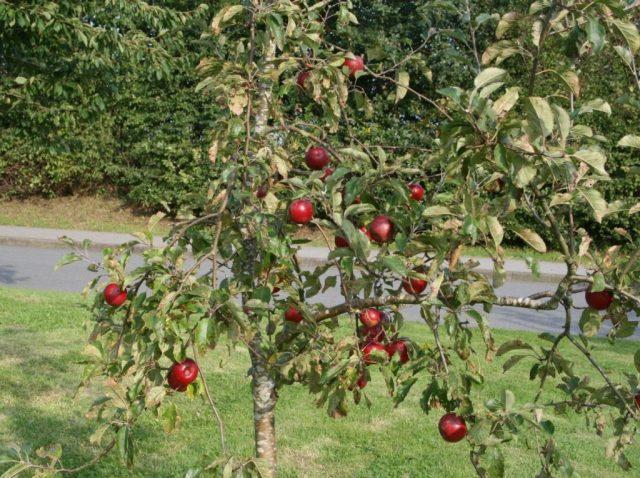
In the first 2-3 years after planting, the tree does not need fertilizing, and then complex products must be added to the soil three times per season.
Particular attention should be paid to preparing for winter. If the temperature in the region drops below -15 °C, then wrap the tree with agrofibre or spruce.The space around the trunk must be mulched. Hay or straw, pine needles are suitable for this.
Trees are already pruned in the second year after planting. It should be carried out annually. It is best to set aside time for this in mid-spring and autumn. All damaged and frostbitten branches must be pruned. It is also recommended to thin out the shoots to increase yield.
How to store Jonathan apples
If you place the crop in a refrigerator where the temperature is +2-8 °C, it will last until March. If these conditions are violated, dark spots appear on the skin of the fruit. This reduces the taste of the fruit, giving it a bitter taste.
Conclusion
The Jonathan apple tree is one of the worthy varieties that can be grown both for personal purposes and on an industrial scale. With proper care and proper planting, the gardener will receive a stable harvest every year. Special attention should be paid to the storage of collected fruits.
Reviews from gardeners about the Jonathan apple tree
